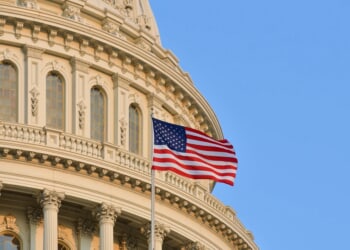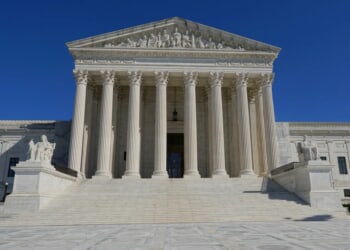Despite heavy government (that is, taxpayer) subsidies, sales of automobiles driven by batteries rather than gasoline haven’t taken off nearly so quickly as their advocates had hoped. Ostensibly, the benefit of driving electric cars is that they don’t emit CO2, and thus, allegedly, reduce global warming. In reality, this benefit — even assuming that global warming is a major risk — is much less than alleged, since it doesn’t take into account the emissions involved both in producing the heavy lithium batteries that EV’s rely on, and in generating the requisite electricity (unless that electricity is produced by wind, solar, or nuclear power — a small fraction of the total nationwide). (RELATED: A Wrong Turn on the Road to ‘Green’ Energy)
By 2024, however, Tesla reported its first annual sales drop.
And for the consumer, this purported benefit must be weighed against the obvious inconvenience of driving an EV, namely, their need to be recharged after every couple of hundred miles or so, a process that can take hours (as opposed to the few minutes it takes to refill a gas tank). And there is always a risk that on a long trip, you may not find a conveniently located charging station at all — so you’d better plan your stops ahead of time. (RELATED: Longing for the Era of Economy Cars and Real Fuel Efficiency)
As a result of this obvious disadvantage, as well as the typically higher price (even after subsidies) of electronic vehicles as compared with gas-driven ones, such vehicles, including the most popular Teslas, remain a luxury purchase for city dwellers to use for local drives, while they keep a gas-powered one for longer trips. Typically, only wealthier couples (certainly not single people) can afford such a luxury. But for those who can afford one, there is an added benefit besides the feeling that you are helping to save the planet: that of social cachet. As one woman who bought a Tesla Model Y two years ago put it in a March 7 interview with the New York Times, “It was definitely a little bit of a cool moment to have something” that was so “innovative and different.”
Alas, the Times reports, this woman, and many like her, are now suffering from “buyer’s remorse.” The reason isn’t any defect in the Tesla itself. The problem is rather that they object to the politics of the individual who owns the company that manufactures it, Trump adviser and DOGE director Elon Musk. As the Times puts it, Tesla owners like the woman it profiles (a 54-year-old family therapist and committed Democrat), but also including “well known” individuals like singer Sheryl Crow, both at home and abroad, find Musk’s “values and politics” to be “alienating” — all the more so given his current political role.
Hence, many of these wealthy purchasers are selling their prized possessions, typically for considerably less than what their resale value might have been until just recently. (The purchaser in the Times profile received only “$32,000 of the Tesla’s original $55,800 value,” even though it had only 10,000 miles on it, when she traded it in for a gas-powered Mercedes. Previously, so great was her “embarrassment” at being seen in the Tesla — in contrast to the social status it had previously conferred — that she purchased a bumper sticker saying “I bought this before Elon went crazy,” a sticker that has grown in popularity.
The deciding moment for the disillusioned purchaser occurred when she was called a Nazi in a supermarket parking lot, along with an expletive — apparently because Musk had extended his arm at an inauguration event for Trump in a manner some thought to resemble a Nazi salute.
None of this is to take away from Musk’s technical and commercial prowess, such that global Tesla sales rose from 50,000 in 2015 to nearly a million in 2021, and Teslas, as the Times reports, were populating the Instagram feeds of the rich and famous.
Tesla’s Political Status Dives
By 2024, however, Tesla reported its first annual sales drop. And animosity towards the company’s owner has grown to the point of affecting non-celebrities without any particular political stake, such as a Massachusetts cosmetic surgeon who’d purchased an “eye-catching” gold Cybertruck manufactured by Tesla to advertise his practice (with a sticker providing his professional contact information), but in consequence has now received negative reviews on his website and threatening phone messages at the office, leading him to plan to sell it. (Tesla refused his request to trade it in.)
Abroad, a member of the Scottish Parliament announced that he had sold his Tesla of five years, being unable to drive it any longer on account of “Musk’s daily outrages” and “butchery of respectful public discourse.” Such disaffection has not, however, reached the State Department, which the Times reports “has planned a $400 million purchase of Cybertrucks,” local governments in Baltimore and Seattle, and the Los Angeles police department. And reportedly, a Facebook group for Tesla owners with 93,000 members includes people who report having purchased a Tesla just to support the DOGE operator and his policies.
Separation of Politics and Consumer Habits
What lessons should we take away from all this? First of all, nobody will ever disabuse Americans of their tendency to purchase automobiles on the basis of what looks cool or fashionable (it was tail fins in the 1950s, T-Birds in the 1960s and 1970s). What has changed in recent times is the disposition to choose vehicles on the basis of political preferences. (There is no evidence that Eisenhower and Stevenson supporters tended to choose different makes or models of autos. By roughly the 1980s, left-leaning families tended to go for Volvos; later, it was Subarus. For a while, right-wingers chose Hummers.)
What is more disturbing about this tendency is the growing disposition of mainstream Americans (neither socialists or members of the Squad, nor self-proclaimed radical America Firsters) to allow politics to pervade formerly private or social aspects of their lives, to the point of pasting swastikas on vehicles of the “wrong” make. (RELATED: EV Slowdown: Limits of ‘Technology Forcing’)
At the same time, even as the Trump administration, with Musk as its self-proclaimed executor-in-chief, has proclaimed its aspiration to make deep cuts in America’s excessively deep and often unaccountable bureaucracy, the president has not avoided succumbing to the temptation to expand the government’s scope in other highly questionable directions. A prime example here is Trump’s announcement of a “strategic cryptocurrency reserve,” portrayed as being the equivalent of “a digital Fort Knox.”
Sovereign wealth funds themselves, as experienced money manager Cliff Asness points out in a recent Substack column, are typically established by countries (or, in the case of Alaska, a state) seeking to invest budget surpluses. (In the case of Alaska, the surplus derives from the state’s annual oil revenues.) This, of course, is the opposite of America’s current situation, with our $36 trillion (and growing) burden of debt. Investing government revenues, from whatever source, in private companies entails imitating the long-discredited “state-socialist” policy of choosing “winners” over “losers,” instead of allowing free markets and investors to make that choice. Even worse, however, is the idea of “investing” them in cryptocurrency, a highly speculative bet, as Asness notes, with at least five times the volatility of an overall stock index (itself not the most conservative of investments).
As if to prove Asness’s point, on the same day that it reported the Tesla story, the Times announced the discovery of a successful hack, by agents of the North Korean dictatorship, of $1.5 billion from an established American cryptocurrency exchange, Bybit. While other crypto exchanges, fearful of the damage to their business’s reputation, hastened to bail out Bybit (and hence its “investors”), imagine the ruin to the United States if a significant portion of our government’s funds were similarly stolen! And, should the government really be encouraging Americans, in their own financial lives, to deposit their savings and earnings into such a risky enterprise?
In sum: It would be highly desirable if more Americans learned to separate their social and private lives from their politics (the opposite of the “cancel culture”). And the government, in turn, should avoid expanding its scope into playing around with citizens’ finances, more than its duties require.
Along the way, perhaps more Americans, instead of adopting their opinions about matters of science, such as climate change, might consider fact-based studies that challenge what is currently fashionable. (With regard to EV owners, for instance, this might entail considering the work challenging the ostensible climate “consensus” by the Swedish head of the Copenhagen Consensus, which collects information from highly qualified scientists with a variety of points of view, Bjorn Lomborg.)
READ MORE from David Schaefer:
Arab Hatred of Jews Predates the State of Israel
Free Speech Restrictions Are a Problem
Should Tom Friedman Celebrate Jimmy Carter’s ‘Achievements’?





![Trump's Admin Guts Another ‘Rogue Government Agency with Zero Accountability’ [WATCH]](https://www.right2024.com/wp-content/uploads/2025/03/Trumps-Admin-Guts-Another-‘Rogue-Government-Agency-with-Zero-Accountability-350x250.jpg)



![‘We All Owe Him (Elon) a Huge Debt of Gratitude’ [WATCH]](https://www.right2024.com/wp-content/uploads/2025/03/‘We-All-Owe-Him-Elon-a-Huge-Debt-of-Gratitude-350x250.jpg)







